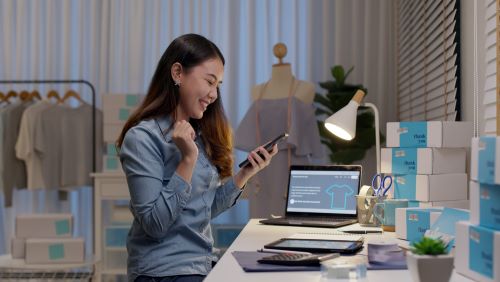As I was scrolling through Instagram (as you do), I came across a fascinating video of a lady who turned a disposable shopping bag from a high-end luxury brand into a handbag. Initially, I was highly impressed by the creativity. Still, of course, the IP lawyer in me could not help but think about the implications for trade mark owners when their brand names/ trade marks appear on recycled goods that are being sold.
What is upcycling?
Upcycling is not a recent trend, and for years people have been upcycling unwanted items to create fashion items, homeware, household items or even jewellery. The aim of upcycling is to repurpose unwanted items into something ‘new’. Take, for instance, the infamous tailor Dapper Dan, who has been upcycling and customising luxury brands for over 30 years. Before his lucrative brand partnership, Dapper Dan has had his fair share of infringement claims.
We have seen a rise in the number of videos showing off items that have been upcycled during the pandemic. While upcycling may be considered positive, environmentally friendly, and extremely creative/resourceful, brand owners may take a different stance. This is because upcycled items will often carry the name of their brand.
Does upcycling branded goods constitute infringement, and what can a brand owner do to stop you from upcycling its branded goods?
Briffa comment
Thanks to the doctrine of exhaustion, third-parties can resell authentic trade mark branded products provided the products being resold are not ‘materially different’ and the products are not being marketed as ‘new’. This legal doctrine protects the purchaser/reseller from an infringement claim if they choose to resell those products.
Whether or not upcycling a product would be considered infringing is dependent on the facts of the case. However, we have seen from case law that the courts are likely to decide that ‘materially altered’ products are infringing if consumers are likely to be deceived, confused, or mistaken about the qualities, features, or origin of the product. It is this likelihood of confusion or deception that creates liability for infringement.
If a brand owner believes an upcyclers conduct is infringing, it can (1) send a cease and desist letter demanding you stop the infringing activity and/or (2) issue proceedings for infringement. If successful in their claim the cost implications for the upcycler could be crippling.
To avoid infringement, when marketing the upcycled product, there must be full disclosure and no suggestion of affiliation or sponsorship between the upcycler and the brand owner. Alternatively, and arguably the path of least resistance would be to seek a licensing arrangement between the upcycler and the brand owner. From the perspective of the upcycler, permission from the brand owner is an adequate defence to any infringement claim. From the brand owner’s point of view, the brand owner will retain control over the quality of the upcycled product and how the brand/trade mark is being used.
The takeaway here is that there is a thin line between upcycling and what would constitute infringement, and the outcome is heavily reliant on the facts of each case. If you are an upcycler and you would like advice on potential risks, or if you are a brand owner and you would like advice on your options regarding possible infringement, please do not hesitate to get in touch with us at info@briffa.com or call us on 0207 288 6003 (and one of our specialist IP lawyers will be happy to assist.

